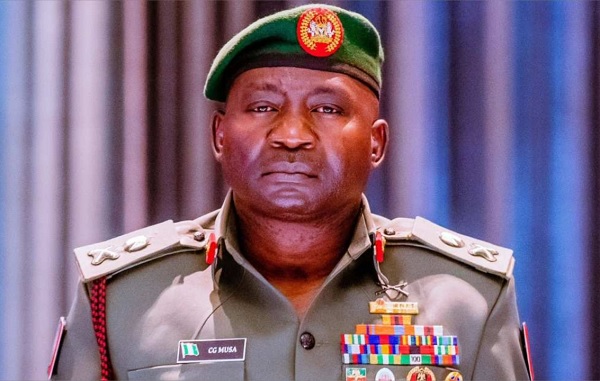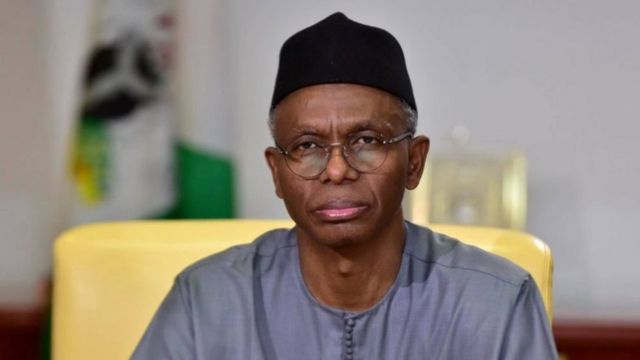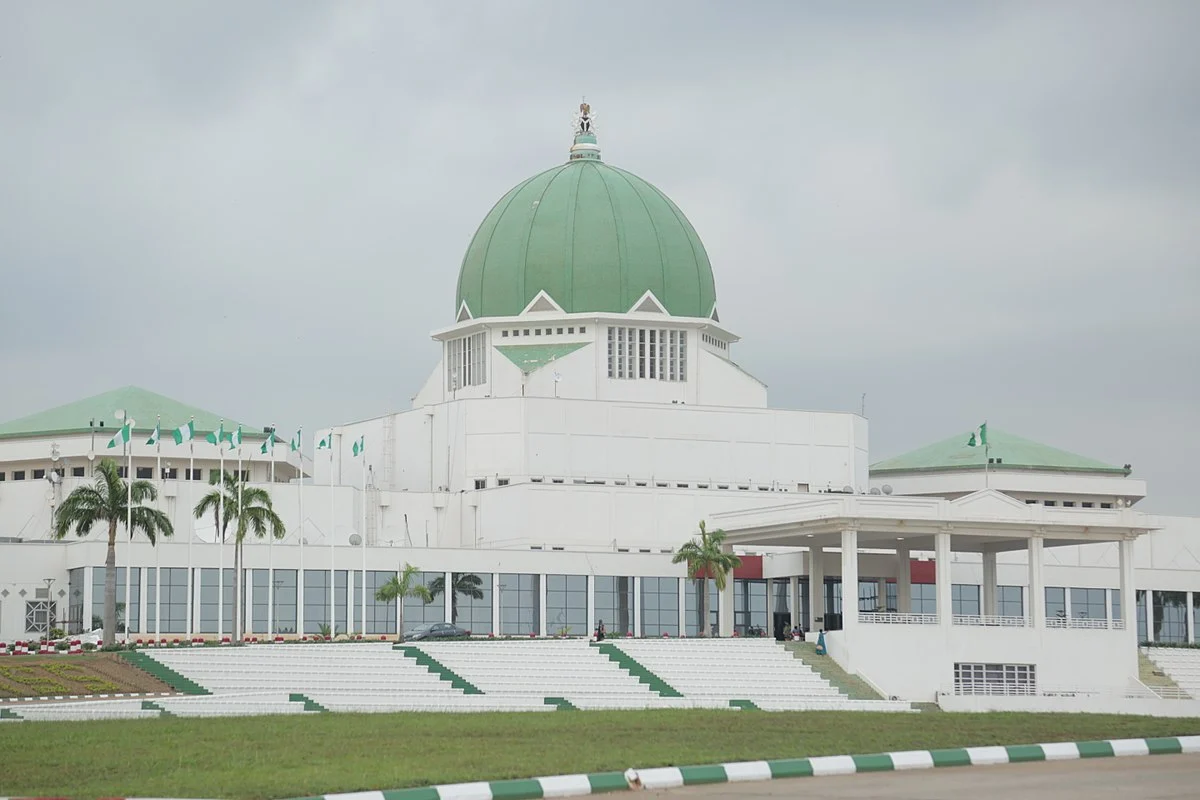The Chief of Defence Staff (CDS), Gen. Christopher Musa, has warned that poverty and hunger have escalated beyond social issues, now posing serious threats to Nigeria’s national security.
Speaking at the opening of the 14th National Security Seminar in Abuja on Monday, Gen. Musa, represented by the Chief of Defence Training, Rear Admiral Ibrahim Shetimma, stressed that insecurity in the modern world is no longer solely defined by armed conflict, but also by widespread economic hardship, food insecurity, and social dislocation.
The seminar, themed “Combating Hunger and Poverty for Sustainable Peace and Development in Nigeria,” was organised by the Alumni Association of the National Defence College (AANDEC) in collaboration with the Office of the National Security Adviser (ONSA).
National Security Adviser (NSA), Mallam Nuhu Ribadu, said the administration of President Bola Ahmed Tinubu is actively working to break the cycle of poverty and insecurity through key initiatives such as agricultural reforms, expanded social investment programmes, and targeted security interventions.
“There is a clear link between poverty and insecurity, which feeds a vicious cycle that stifles economic growth and worsens social vulnerabilities. Hunger and deprivation are not just humanitarian concerns; they are drivers of crime, violence, and national instability,” Ribadu said.
Minister of Defence, Muhammad Badaru, echoed the need for a people-centred approach to security. He called for targeted solutions that address the root causes of insecurity, including unemployment, poverty, and social exclusion.
Badaru emphasised the need for collective action, noting that Nigeria’s security challenges transcend borders and require broad collaboration.
The speakers unanimously agreed on the urgent need for a coordinated national response to economic hardship, warning that without deliberate intervention, hunger and poverty could continue to fuel unrest and weaken the country’s social fabric.
He said, “Insecurity today is not only defined by weapons but also by economic deprivation, food insecurity, and social dislocation. Hunger and poverty are no longer mere social challenges – they have become national security threats.
“The North Central region, particularly Benue State, once considered Nigeria’s food basket, is a clear example of how banditry, displacement, and farmer-herder conflicts have devastated agricultural productivity.”
Musa noted that the disruption of farming communities and illegal occupation of farmlands contributed to food inflation, displacement, and mass migration, thereby destabilising both the economy and national cohesion.
He called on communities to deny criminals and terrorists sanctuary by supporting intelligence gathering, timely reporting, and community vigilance.
The CDS called for urgent investment in grassroots agricultural development.
He urged the government and stakeholders to reposition farming as a noble and rewarding profession by enhancing access to credit, infrastructure, and market linkages.
He said: “With the migration of rural youth to urban centres, agricultural productivity is declining.
“We must make farming attractive again, not as a last resort, but as a national duty and a prestigious calling,’’ he added.
Musa also praised President Bola Tinubu’s Renewed Hope Agenda, particularly its emphasis on financial autonomy for local governments, which he described as vital for responsive and community-driven development.
“I assure you, the Armed Forces of Nigeria, in synergy with other security agencies and with the support of the people, remain resolute in overcoming all security threats,” he said.
“We must build a Nigeria where every citizen can live in peace, engage in productive livelihood, and enjoy the dividends of democracy.”
He commended the organisers for creating a strategic platform for critical dialogue on Nigeria’s security and developmental challenges.
Tinubu prioritises agric reform to end poverty – Ribadu
Represented by the Director of Defence Affairs at ONSA, Maj.-Gen. Peter Mala, Ribadu said that national security is a collective responsibility that demands a multidimensional and collaborative approach.
According to the NSA, there is a vicious cycle between poverty and insecurity, which hinders economic growth and exacerbates social vulnerabilities.
He said: “The Federal Government under President Tinubu has prioritised agricultural reforms, social investment programmes, and security sector interventions aimed at breaking this cycle.
“These efforts are visible through increased support for food security initiatives, enhanced law enforcement capacity, and infrastructure to support agricultural production and distribution.”
The NSA said that his office had continued to coordinate both kinetic and non-kinetic efforts across the armed forces, intelligence services, security agencies, and relevant government and non-governmental actors.
He said in spite of the progress made, issues like unemployment, hunger, and youth disenfranchisement remain persistent and require deeper, long-term solutions.
According to Ribadu, the seminar presents an excellent platform for collective introspection and the sharing of ideas towards tackling the dynamic and multifaceted challenges confronting the nation.
He commended AANDEC for its commitment to national development and bringing together leaders of thought, security experts, policymakers, and citizens to chart a path forward.
…’Whole-of-society’’ approach key to end poverty – Badaru
Badaru said that only a “whole-of-society” approach could tackle pressing issues like hunger, poverty, and violence.
He commended President Bola Tinubu’s commitment to improving the quality of life for all Nigerians and praised the Armed Forces and security agencies for their bravery and innovation in responding to security threats.
Badaru said the seminar served as a platform for stakeholders to deliberate on sustainable solutions, foster dialogue, and promote inclusive approaches to national security.
He expressed confidence in the collective efforts of Nigerians to build a secure and prosperous future, where peace and stability reign supreme.
Badaru said the Defence Ministry remains committed to supporting innovative and inclusive approaches to national security.
“May our collective efforts continue to strengthen our path towards unity, resilience, and sustainable national security,” he said.
The President of AANDEC, retired Air Commodore Darlington Abdullahi, underscored the need for sustained investment in education, economic empowerment, and social inclusion as critical non-kinetic responses to Nigeria’s deepening
Abdullahi said that hunger and poverty were not just humanitarian crises but strategic threats to national stability.
He stressed that neglecting the socio-economic well-being of the population creates fertile ground for instability and extremism.
Abdullahi said, “When millions suffer from hunger and poverty, they become vulnerable to exploitation by those with ill intentions.
“We must therefore invest in our people, especially in education, livelihoods, and skills development.”
“Economic initiatives that foster inclusion and bring communities together can be effective tools for peacebuilding, as they create an atmosphere of stability and discourage violence.”
He advocated for the creation of a dedicated vocational and leadership development centre for widows and children of fallen heroes, describing it as a necessary step in empowering vulnerable populations and promoting national healing.
Thenationonlineng.net
















